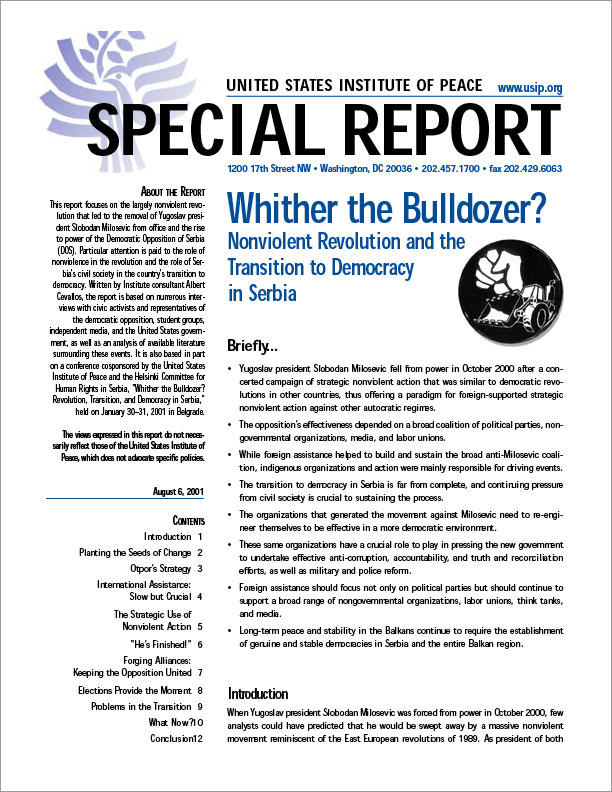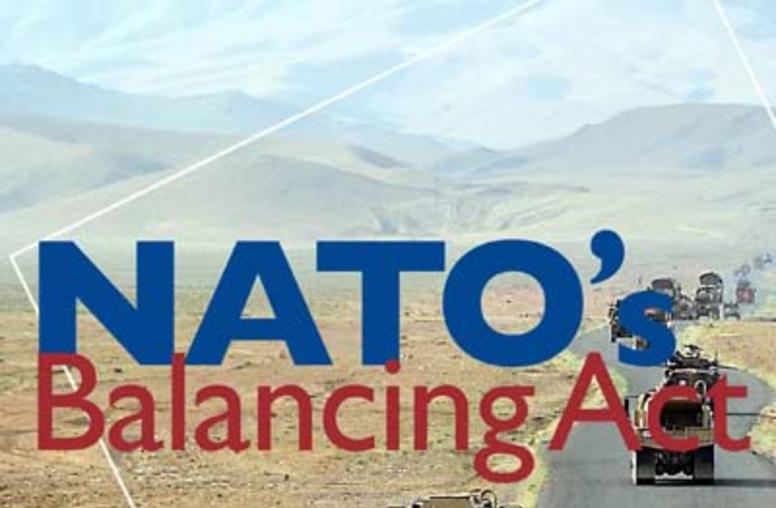Whither the Bulldozer?: Nonviolent Revolution and the Transition to Democracy in Serbia

Summary
- Yugoslav president Slobodan Milosevic fell from power in October 2000 after a concerted campaign of strategic nonviolent action that was similar to democratic revolutions in other countries, thus offering a paradigm for foreign-supported strategic nonviolent action against other autocratic regimes.
- The opposition's effectiveness depended on a broad coalition of political parties, nongovernmental organizations, media, and labor unions.
- While foreign assistance helped to build and sustain the broad anti-Milosevic coalition, indigenous organizations and action were mainly responsible for driving events.
- The transition to democracy in Serbia is far from complete, and continuing pressure from civil society is crucial to sustaining the process.
- The organizations that generated the movement against Milosevic need to re-engineer themselves to be effective in a more democratic environment.
- These same organizations have a crucial role to play in pressing the new government to undertake effective anti-corruption, accountability, and truth and reconciliation efforts, as well as military and police reform.
- Foreign assistance should focus not only on political parties but should continue to support a broad range of nongovernmental organizations, labor unions, think tanks, and media.
- Long-term peace and stability in the Balkans continue to require the establishment of genuine and stable democracies in Serbia and the entire Balkan region.
About the Report
This report focuses on the largely nonviolent revolution that led to the removal of Yugoslav president Slobodan Milosevic from office and the rise to power of the Democratic Opposition of Serbia (DOS). Particular attention is paid to the role of nonviolence in the revolution and the role of Serbia's civil society in the country's transition to democracy. Written by Institute consultant Albert Cevallos, the report is based on numerous interviews with civic activists and representatives of the democratic opposition, student groups, independent media, and the United States government, as well as an analysis of available literature surr∂ounding these events. It is also based in part on a conference cosponsored by the United States Institute of Peace and the Helsinki Committee for Human Rights in Serbia, "Whither the Bulldozer? Revolution, Transition, and Democracy in Serbia," held on January 30-31, 2001 in Belgrade.
The views expressed in this report do not necessarily reflect those of the United States Institute of Peace, which does not advocate specific policies.



